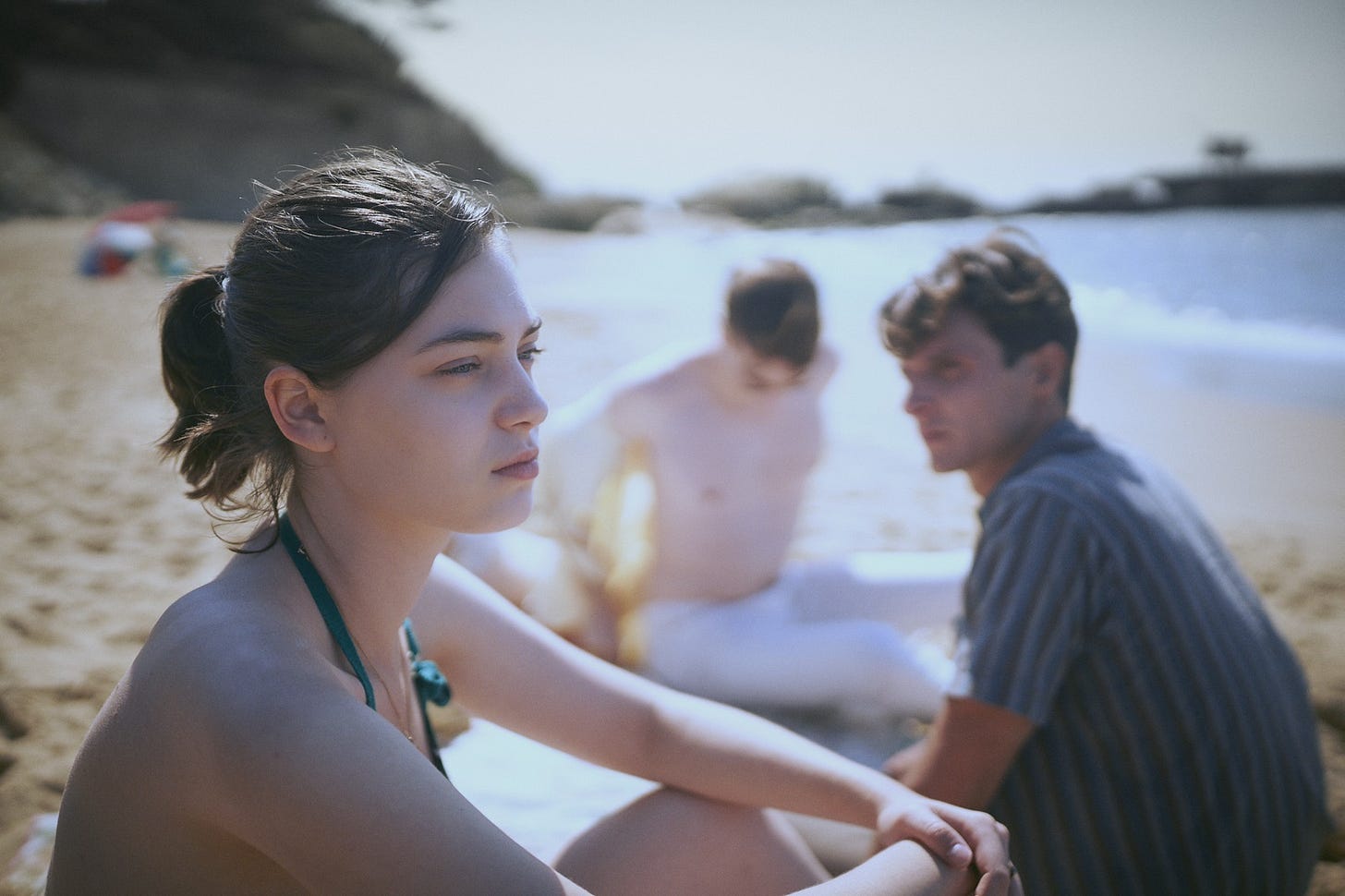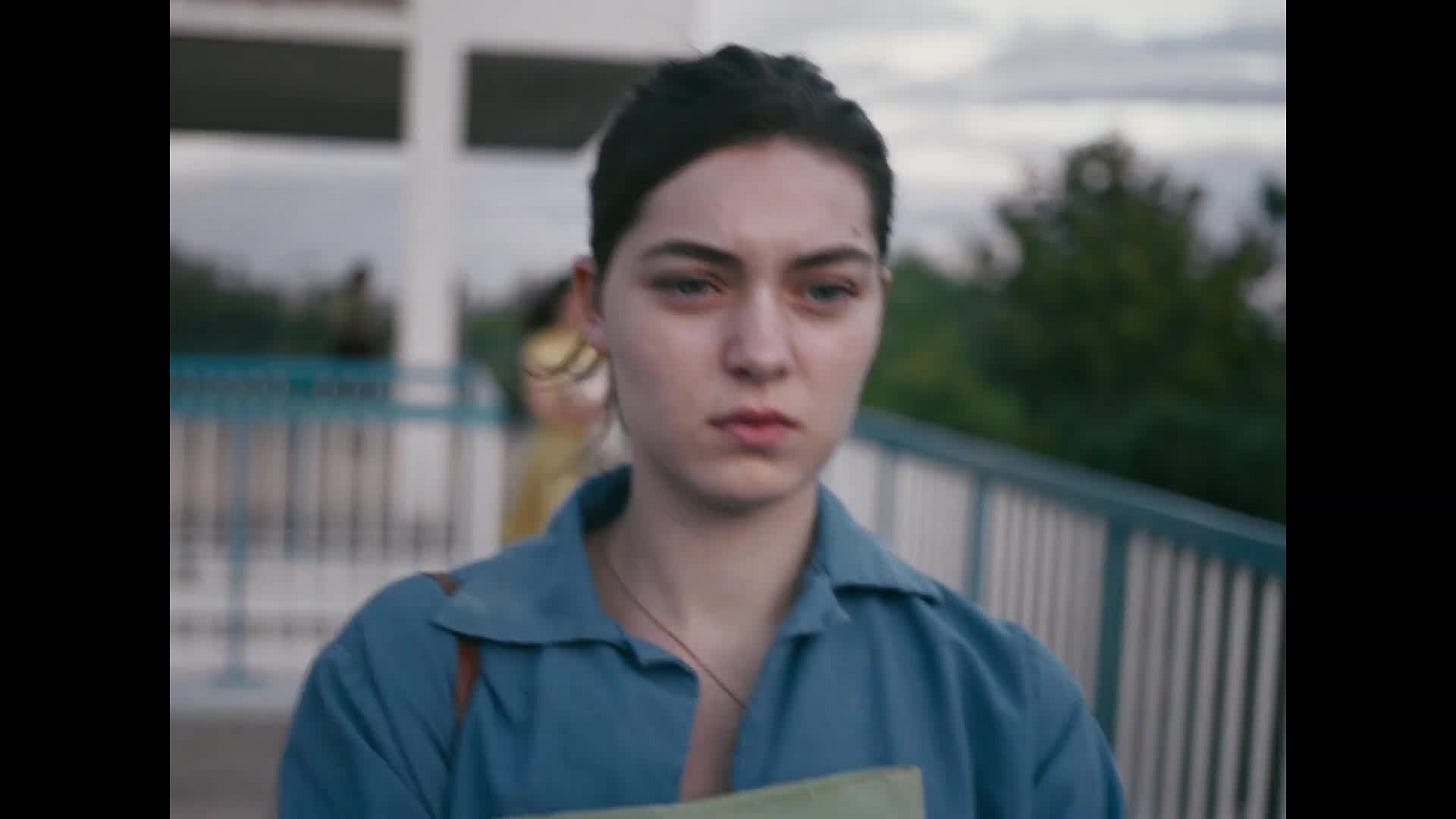What to Watch: "Happening"
A young woman seeks an abortion in 1963 France in a new movie that couldn't be more timely.
The Nut Graf: Audrey Diwan’s coolly furious “Happening” (in theaters May 6; on VOD June 21, ***1/2 stars out of ****) depicts an anti-abortion past that echoes disturbingly into the future.
There are five Supreme Court justices for whom I’d dearly like to buy tickets to “Happening,” Audrey Diwan’s new film about a young woman seeking an illegal abortion in 1963 France. I don’t have to tell you their names. I’m under no illusions that any judicial minds or votes would be changed by the movie, which opens in New York and L.A. on Friday, May 6, and rolls out to other cities on the 13th (including the Kendall Square in Cambridge and the Coolidge Corner in Brookline) before hitting VOD June 21. But at least they’d be forced to confront the hellscape they want this country to return to and the potential suffering half the population stands to endure.
“Happening” (“L’événement”) is based on the 2002 novel of the same title by the French writer Annie Ernaux, whose fictional works are rooted in autobiography. So too here: Both book and movie relate with dispassionate exactitude the unwanted pregnancy and back-alley abortion experienced by “Anne” (Anamaria Vartolomei), a literature student at a university near Paris. Vartolomei, a French-Romanian actress, plays the role as a girl not without her flaws; Anne is smart and knows it, and she sees herself as more daring and sophisticated than the other girls in her dorm – she’s arch and callow and open to the thrill of a spontaneous hookup with a visiting poli-sci student (Julien Frison) she meets in a bookshop. The real drama of “Happening” is in the main character’s face as the weeks roll on and Vartolomei’s eyes lose their casual superiority – they widen in panic and then dull in despair. Anne knows she could have the baby and go back to her working-class family (with a mother played by Sandrine Bonnaire, long ago the rebellious runaway of Agnès Varda’s “Vagabond”) and her friends at the local factory; not become the first to go to university; not have the life and future one of her professors (Pio Marmï) has predicted for her. Even the tight walls of the film’s Academy ratio seem to press in on her.
Until becoming legalized in 1975, abortion was punishable in France by imprisonment, and in the 1963 of “Happening,” it’s spoken of in whispers, if at all. Consider that 1963 was only 20 years away from the last person executed for providing abortions, Marie-Louise Giraud, who was guillotined by the Vichy government during World War II. (Giraud was played by Isabelle Huppert in Claude Chabrol’s 1988 “Story of Women,” currently streaming on The Criterion Channel.) When Anne even hints to her family doctor (Fabrizio Rongione) that she might not want to have this child, he orders her out of his office in a sweat.
And he’s one of the sympathetic ones. We learn in “Happening” of doctors who give injections that they tell their patients will induce a miscarriage that in fact strengthens the embryo; of attending physicians, all male, who with one word on a hospital report can send a woman suffering the effects of a botched self-induced abortion to prison. There is a sisterhood of assistance, Anne learns, but it is far underground, cloaked in secrecy and fear, and even there she is fundamentally alone. “Happening” is a paranoid thriller made out of the patchwork of one woman’s life, and it’s quite explicit without ever being exploitive. I’d say it’s not for the squeamish, but you know what? It is for the squeamish, especially those who hold power over women’s bodies in this country but don’t trust them to make decisions on their own behalf.
They’re the ones who should see “Happening,” and then they should see “4 Months, 3 Weeks, and 2 Days” (2007), one of the greatest movies of the new century and one set in 1987 Communist Romania, an even worse place for a pregnant woman to be; and then they should see “Never Rarely Sometimes Always” (2020), which dramatizes how difficult it is to get an abortion even in an America where it’s legal (and why a teenage girl might desperately want one); and then they should see “Obvious Child” (2014), which looks at a woman’s choice with sadness and rueful humor and an understanding that’s lacking in all of the ”pro-life” rhetoric that has led us to this current moment. All of these are must-viewing for anyone who thinks it can’t happen here again. Breaking news: It's about to.
If you enjoyed this edition of Ty Burr’s Watch List, please feel free to share it with friends.
If you’re not a paying subscriber and would like to sign up for additional postings and to join the discussions, here’s how:
If you’re already a paying subscriber, I thank you for your generous support.





